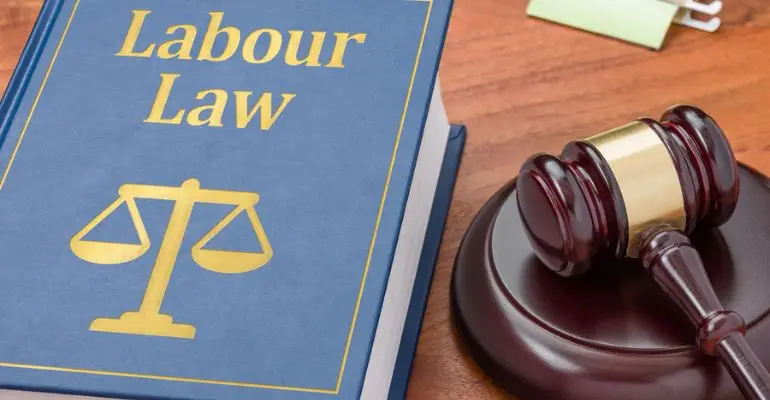What Is a Pre-Adverse Action Notice?

Can You Still Get Hired After a Pre-Adverse Action Letter?
Receiving a pre-adverse action letter may seem like a death knell for your chances of working for that particular employer. It is easy to feel that by sending the notice, the employer has already written you off as a potential candidate and is committed to hiring another applicant.
While this is certainly a possibility, it is not the only way to view receiving a pre-adverse action notice.
Though employers must give you a pre-adverse action notice regardless of how they feel about you as a candidate, there is a silver lining to receiving this notice — it allows you to provide additional information to the employer.
You can provide context or additional information to explain the negative information on the background report.
There is no requirement, legal or otherwise, that says once an employer sends a pre-adverse action notice, that employer must follow through and take the adverse action. After receiving the additional information you provide, the employer can offer you the position and not take the adverse action threatened in the notice.
Because employers can and do change their minds after receiving additional information or context about the negative information found in your background report, you must respond in a timely manner to a pre-adverse action notice.
The worst outcome that can happen is that the employer follows through and does not extend the opportunity to you.
Are Employers Required to Send a Pre-Adverse Action Notice?
Although some employers may want to avoid sending a pre-adverse action notice, providing such notice is legally required. An employer considering not hiring or promoting an employee because of a negative background check does not have the discretion to decline to provide the notice to the applicant or employee.
According to the FCRA, an employer must provide a pre-adverse action notice any time the employer intends to take an “adverse action” against a current or prospective employee because of a background report.
The term “adverse action” includes not only a refusal to hire but any employment-related decision that affects a potential employee or a current worker.
The employer must send the notice when an adverse action is contemplated or intended.
No law indicates how soon after receiving the negative background report, the employer must send the pre-adverse action notice, only that it must be done when an adverse action is being considered. An employer must send the notice before any adverse action is taken.
Not only does the FCRA require a pre-adverse action notice to be sent, but the law also governs what the notice must contain. Once again, employers do not have the unfettered discretion to craft any notice they choose. The notice must conform to the legal requirements of the FCRA by including specific information and advisories.
An employer who sends a deficient pre-adverse action notice can find themselves in the same perilous legal position as one that provided no notice. This is because failing to provide a legally sufficient pre-adverse action notice does not allow the employer to take the adverse action.
A corrected notice must first be provided before the anticipated adverse action can be taken.
What Does a Pre-Adverse Action Notice Include?
When you receive a pre-adverse action notice, you have certain rights, including the right to review the background report with negative information and the right to challenge inaccurate information.
However, many applicants and employees might need to be made aware of these rights or how to assert them. For this reason, the FCRA mandates that pre-adverse action notices contain specific important information.
First, the notice itself must contain a notice that, based in whole or in part on the results of a background investigation, the employer is considering taking an adverse action.
The language used in the notice is important, and the employer’s notice should speak in terms of the employer “considering” taking adverse action. If the notice speaks of the employer having already taken an adverse action, the employer may have violated the FCRA.
Next, the employer should include a copy of the background report containing the negative information that the employer is considering in making its decision. This allows you to review the same report your employer has reviewed and view the same negative information your employer has seen.
Reviewing the report containing the negative information is crucial to your ability to respond appropriately.
Suppose the employer was permitted to give you a summary statement of the negative information it found. In that case, such a summary might not give you sufficient detail to address your employer’s concern. Or the summary provided may be inaccurate.
It is for this reason that you should receive a copy of the background report in question with your pre-adverse action notice letter.
Finally, your pre-adverse action notice should contain “A Summary of Your Rights Under the Fair Credit Reporting Act.” This document advises you of the rights you have under the FCRA, including the right to:
- Know if information about you in a consumer report has been used in an adverse manner against you
- Know what is in your file that a particular consumer reporting agency keeps on you
- Dispute information in your report that is not accurate or not complete
- Only allow employers to have access to your report with your consent
Armed with the information in a proper pre-adverse action notice, you should be well-informed as to what information the employer received about you, where the information came from, and what you can do to correct the negative information if it is inaccurate.
Typical Waiting Period for Pre-Adverse Action Letters
Once your employer has sent you a pre-adverse action notice, it must give you a “reasonable time” to provide any information or clarification you would like to provide. The employer may not take the intended adverse action against you during this time frame.
Once a reasonable time has passed, the employer may proceed with the pending adverse employment action.
While the FCRA states that the employer must wait a reasonable time after providing the pre-adverse action letter, it does not define the term “reasonable time.”
Thankfully, court decisions and guidance from the Federal Trade Commission (FTC) have suggested that five days is sufficient for you to review your consumer report and take corrective action.
This five-day period is not binding, though. Instead, the five days are meant as a general guideline for employers. The amount of time your employer should wait before taking adverse actions against you may be slightly longer or shorter than five days, depending on your specific circumstances.
When to See an Attorney
While unfortunate, receiving a pre-adverse action letter pursuant to the FRCA does not automatically signal that your employer has acted unlawfully toward you. Employers do generally have the right to make employment decisions, in part or in whole, on information contained in consumer credit reports.
However, now that you know the answer to “What is a pre-adverse action notice?”, there are several situations in which you should consult with an attorney right away. First, if your employer refuses to hire you because of information in a background report but did not first give you a pre-adverse action notice, your rights may have been violated.
Similarly, if the notice you received did not contain all of the essential elements and a copy of your consumer report, you may have rights under the FCRA.
If you have questions about what a pre-adverse action notice is or if you need clarification on your FCRA rights, Wenzel Fenton Cabassa, P.A. is here to help. Our years of experience representing employees and job applicants make us familiar with the FCRA and your rights under this critical legislation.
You have a limited time to act when you receive a pre-adverse action notice. However, promptly enlisting the help of Wenzel Fenton Cabassa, P.A. can mean the difference between a job offer and a job rejection, both now and in the future.
Do not risk your employment prospects by allowing inaccurate negative information to remain on your consumer report. Contact Wenzel Fenton Cabassa, P.A. right away.
Please Note: At the time this article was written, the information contained within it was current based on the prevailing law at the time. Laws and precedents are subject to change, so this information may not be up to date. Always speak with a law firm regarding any legal situation to get the most current information available.
Related Posts
Recent Posts
- False Claims Act Retaliation & Your Rights
- Fired for Being Pregnant? 5 Situations When You Should Call an Employment Lawyer
- Can My Boss Take My Tips? The Laws of Tip Ownership
- What Does “Meets FCRA Requirements” Mean?
- Can Your Employer Contact You While on Medical Leave? Know Your FMLA Rights in Florida
Contact Us

FREE HELP GUIDES
Dealing with unpaid wages, discrimination or wrongful termination? Get the information you need to protect your workplace rights. We offer employment law resources to help you fight for workplace justice.




